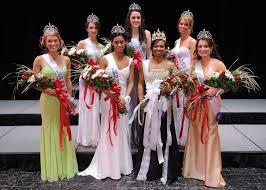记忆方法
1. 谐音“陪警特”----陪伴在两旁的特警---举行盛大庆典时,肯定得有特警陪护,来维持秩序、保护安全。
2. page => pageant: 原意是“戏剧作品”-----后来发展引申为露天的、盛大的与戏剧有关的表演,进而引申为“ 盛大庆典、盛会、露天表演”。
3. beauty pageant => pageant.
2. page => pageant: 原意是“戏剧作品”-----后来发展引申为露天的、盛大的与戏剧有关的表演,进而引申为“ 盛大庆典、盛会、露天表演”。
3. beauty pageant => pageant.
中文词源
pageant 穿古代服装的游行,古装仪式,人生画卷
来自page,页码,书页,-ant,名词后缀。比喻用法。
英语词源
- pageant (n.)
- late 14c., "play in a cycle of mystery plays," from Medieval Latin pagina, of uncertain origin, perhaps from Latin pagina "page of a book" (see page (n.1)) on notion of "manuscript" of a play.
But an early sense in Middle English also was "stage or scene of a play" (late 14c.) and Klein says a sense of Latin pagina was "movable scaffold" (probably from the etymological sense of "stake"). With excrescent -t as in ancient (adj.). Generalized sense of "showy parade, spectacle" is first attested 1805, though this notion is found in pageantry (1650s).
权威例句
- 1. Rain chilled the glittering pageant.
- 雨使华丽的庆典大为逊色.
- 2. Our pageant represented scenes from history.
- 我们的露天历史剧上演一幕幕的历史事件.
- 3. The pageant promises to be a curious mixture of the ancient and modern.
- 游行盛典将会是古老与现代的奇特融合。
- 4. In August 1968 women held a demonstration at the Miss America Beauty Pageant.
- 1968年8月,妇女在美国小姐选美大赛举行了游行示威。
- 5. To me the pageant of seasons is a thrilling and unending drama.
- 在我看来,一年四季的绚丽景色犹如一出无尽的动人的戏剧.
